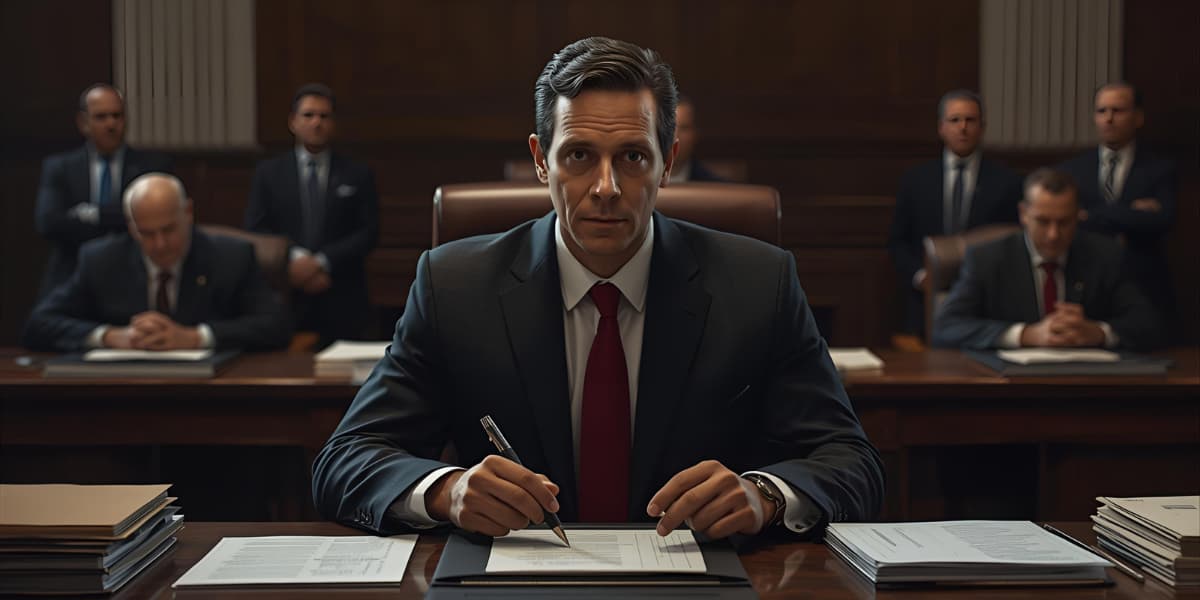Madlanga Commission: 7 Shocking Leadership Changes Explained
The Madlanga Commission of Inquiry, tasked with investigating allegations of corruption and political interference in South Africa’s judiciary and police, is facing a dramatic leadership shakeup. Following Terry Motau’s sudden resignation, Matthew Chaskalson has stepped in to lead the high-stakes investigation, bringing new energy and expertise to this critical process. Our in-depth analysis outlines the seven most significant leadership changes and their implications for the country’s accountability efforts.
1. Terry Motau’s Unexpected Resignation
Terry Motau, who initially headed the commission’s legal evidence team, resigned just ten days after the inquiry began. His departure shocked both government officials and the public, raising questions about the pressures faced by investigators. Although exact reasons remain undisclosed, speculation ranges from external political pressures to the intense demands of handling sensitive testimony. Motau’s exit marked the first major disruption in the commission’s early stages, highlighting the fragile balance between independence and political influence.
2. Matthew Chaskalson Takes Command
With Motau stepping down, experienced advocate Matthew Chaskalson was appointed to lead the commission’s evidence team. Known for his work in high-profile investigations like the Marikana and Zondo commissions, Chaskalson brings a wealth of legal expertise and a reputation for meticulous analysis. His appointment aims to stabilize the commission, ensuring that proceedings continue efficiently despite the initial disruptions. Observers expect him to prioritize transparency, thorough documentation, and rigorous cross-examination of witnesses.
3. Early Challenges and Public Scrutiny
The early days under Chaskalson’s leadership have not been without challenges. Public scrutiny has intensified, with media outlets closely monitoring each development. The commission must navigate politically sensitive testimonies, including statements from top police officials such as National Police Commissioner Fannie Masemola. The combination of high expectations and intense media coverage has created pressure points for the team, requiring careful management of both legal procedures and public relations.
4. The Role of Political Pressure
The Madlanga Commission operates in a highly charged political environment. Leadership changes like Motau’s resignation reflect the intense pressures investigators face from various political actors. Ensuring impartiality while handling sensitive allegations of corruption requires both resilience and strategic navigation. Observers emphasize that maintaining the commission’s independence is critical for public confidence and the credibility of the findings. For real-time updates and official statements, consult the here.
5. Witness Testimonies and Key Challenges
One of the commission’s core challenges involves hearing testimonies from high-ranking officials, including police generals and judicial figures. Accurate documentation and cross-examination are crucial to uncovering truth amidst conflicting accounts. Chaskalson’s experience in prior commissions equips him to manage these delicate proceedings, ensuring that evidence is collected systematically and fairly. Witness cooperation remains pivotal, and the team emphasizes transparency throughout the investigation.
6. Stabilizing the Investigation Team
Following leadership changes, the commission prioritized team stabilization. Senior staff members were reassigned roles to streamline workflows and maintain operational efficiency. Legal and administrative processes were reviewed to address early disruptions caused by Motau’s departure. These measures aim to ensure that the commission meets its objectives within stipulated deadlines while retaining credibility. The public and media remain attentive, observing how the new leadership manages both procedural and political challenges.
7. Media Attention and Public Expectations
The Madlanga Commission has attracted intense media attention, with each leadership change under scrutiny. Public expectations are high, as citizens demand accountability and transparency. Chaskalson’s leadership style, emphasizing meticulous evidence review and clear communication, is expected to address these expectations effectively. Media coverage also plays a role in shaping public perception, highlighting the importance of managing both legal proceedings and public information carefully.
8. Legal Complexities and Procedural Safeguards
The commission navigates a complex legal landscape, balancing investigative powers with the rights of witnesses and subjects of inquiry. Procedural safeguards are in place to ensure fairness and prevent abuse of authority. Chaskalson’s extensive experience ensures that legal protocols are strictly adhered to, reducing the risk of procedural errors. These measures reinforce the integrity of the Madlanga Commission and bolster confidence in its findings.
9. Implications for Governance
The outcomes of the Madlanga Commission have far-reaching implications for governance and institutional accountability in South Africa. High-level testimonies and evidence could influence future policy and enforcement mechanisms. Stakeholders, including law enforcement and judiciary members, are closely monitoring developments.
10. Preparing for Future Challenges
Looking ahead, the Madlanga Commission faces ongoing challenges, including potential legal appeals and further leadership adjustments. Preparing the team for these contingencies is critical. The commission remains committed to rigorous evidence evaluation and public transparency. Citizens are encouraged to follow updates closely, ensuring that accountability efforts continue to unfold effectively.
Conclusion
The Madlanga Commission, under Matthew Chaskalson’s leadership, demonstrates resilience amid leadership disruptions. By maintaining transparency, adhering to legal protocols, and navigating political pressures, the commission strives to deliver credible and actionable findings. For more updates and official documentation, visit the South African Government official portal.




